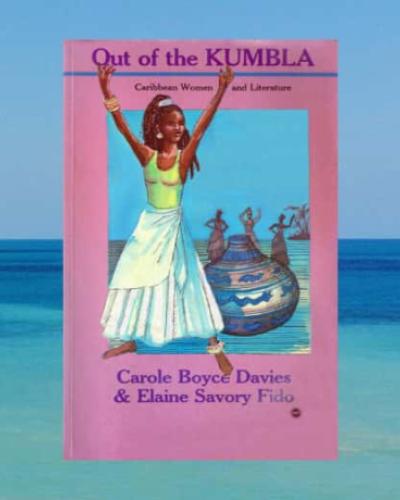Since its publication thirty years ago, Out of the Kumbla has witnessed an amazing flowering of Caribbean women's writing and its criticism all over the world.
Please join us for this celebratory virtual event — also honoring Sylvia Wynter — featuring greetings, poetry, and statements from writers and scholars like NourbeSe, Abena P.A. Busia, Carolyn Cooper, Sandra Messinger Cypess, Pamela Mordecai, Elizabeth Wilson, Nancy Morejon, Evelyn O'Callaghan, and Giovanna Covi, who contributed to this landmark field-founding collection as well as those who were influenced by its publication.
Saturday March 27, 2021
6:00-8:00 p.m.
Register here to attend!
Writers and scholars confirmed: Thomas Glave, Opal Palmer Adisa, Yomaira Figueroa, Rinaldo Walcott, Donna Aza Weir Soley, Giselle Anatol, Myriam Moise, Marcia Douglas, Ramabai Espinet, Erica Johnson, Anu Lakhan, and more!
Out of the Kumbla: Caribbean Women and Literature (1990)
Edited by Carole Boyce Davies and Elaine Savory Fido, this first collection of critical essays on Caribbean women’s literature created a field of literary criticism which engaged the absence of women writers from the Caribbean literary canon as it established the presence of these writers historically. One of its signature lasting contributions was Sylvia Wynter's first major essay for a U.S. publication, "Beyond Miranda's Meanings: Un/Silencing the Demonic Ground of Caliban's Woman," which has since become a theoretical staple in several fields. One of the sections of its introduction, “The Critical Context for a Caribbean Feminist Poetics,” examined these issues theoretically as it raised some critical questions and spurred the development of a continued and sustained intellectual debate. Out of the Kumbla revitalized Caribbean literature and criticism as it expanded the narrow terms of Western feminist discourse. Using the metaphor of the “Kumbla” or “calabash” used to protect precious objects, first used by writer Erna Brodber, coming “out of the Kumbla” then signified a movement from confinement to visibility, articulation, process which allowed for a multiplicity of moves, exteriorized, no longer contained and protected or dominated.
This event is presented in collaboration with The New School Department of Literary Studies & the Association of Caribbean Women Writers and Scholars.






